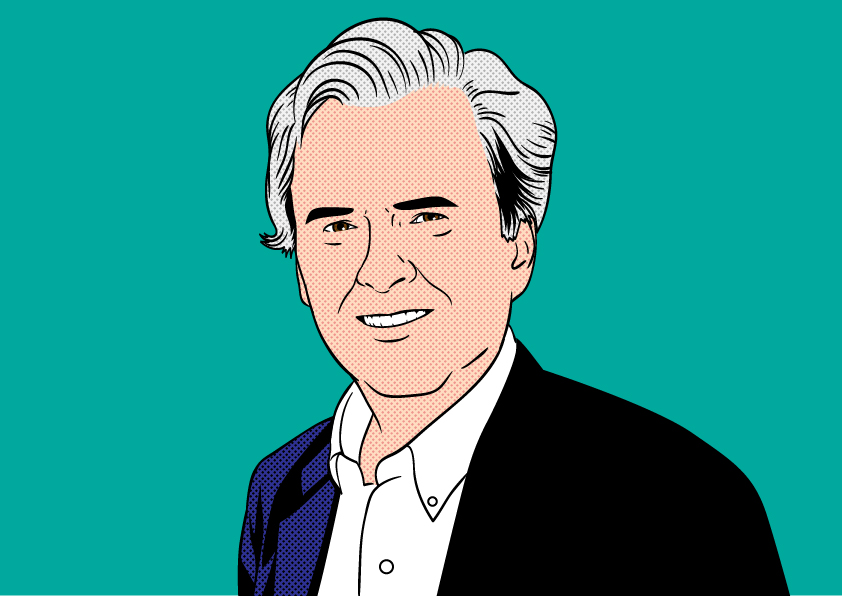Stop Complaining About Covid-19!

By Robert McGarvey
It’s become a gripe fest. People complain that they have to work at home, that the supermarket shelves are stripped of toilet paper, and – above all in the circles in which I move – we complain that business travel is basically on hold and just about every meeting and event has been cancelled.
That might seem fodder for lots of ranting from me in these columns. But, personally, I am struggling to stifle it.
Yes, I am impacted. Yes, trips have been canceled. Events have been canceled. Even a milestone college reunion of mine has been postponed.
Yes, the ineptitude inside the White House has made a fraught situation wretched – and it is hard to explain why there are nowhere near enough test kits, why the White House communications are packed with lies, and why six to eight weeks were lost due to incompetence at the top.
But here’s the deal: complaining would do no good.
And the cancellations and isolation that are our norms today are apparently doing some good.
The Skift headline frames the issue: No, It’s Not Fine to Keep Hosting Live Events.
People have gotten sick with the coronavirus due to meeting attendance. Proceeding with a meeting or event is foolhardy. That’s why so many have been canceled.
Ditto business trips.
Sure, I get it, if the White House had not been inept we probably would have made much greater progress in taming this disease. But it wasn’t and so we use primitive but probably effective techniques such as social distancing and self quarantines and the impacts on life as we knew it have been profound.
But many have it a lot worse than we do. I groan when I think of my canceled college reunion – I am Reunion Chair! – but then I think of the millions of college kids across the country who have in effect been evicted and told they are doing tele courses, like it or not. Yes, I can see big lectures working fine as tele courses but many of my classes were small philosophy seminars with maybe a dozen students and lots of discussion and argument. How does that work now? And what about the social learning that makes college such a useful and perhaps distinctly American institution?
Then there are the impacts on the neediest. Andre House in Phoenix, which nightly feeds 500 or so homeless, has put its sitdown dinner on hold. Sacks of food will be distributed instead – but wouldn’t you much prefer a sit in a convivial atmosphere where volunteers treat you like you matter (and I have volunteered a number of times). The homeless won’t starve. But they will be deprived those human moments that for many made dinner at Andre House special.
Now think of the many whose employment has been cancelled, or at least hours and income have been sharply reduced. Tens of thousands of restaurants are closed, or trying to make it on delivery only, and literally millions of employees and thousands of owners are scrambling to make it another week.
Think of the tens of thousands of flight attendants whose hours have been sharply reduced.
Or the hotel housekeeping staff who don’t have rooms to clean because there are no guests. Innumerable hotel workers face unpaid furloughs.
In China, it is difficult to see any recovery of the hotel business this year and maybe not next year.
Italy has major recovery struggles ahead.
Big questions loom. Will business travel ever return to its previous levels? Will events and meetings? Will flygskam rule? Maybe our old habits will never resume.
Etc. etc. and before we even get to the recovery phase we have to get out of the sickness and death phases and we have to be ready to mourn perhaps millions.
Easy it is to complain – and trust me I was annoyed when I saw shoppers last Saturday had stripped a central Phoenix Whole Foods bare of frozen pizza, dry pasta, and of course toilet paper, dish soap, and hand soaps.
But who to complain to?
So many of us, in a panic mode, have slipped into a comfort zone where hoarding produces a kind of comfort and cursing out people who cancel our events seems normal. It may not be rational but it is how we seem to think.
Do I want to look in a mirror and shout at myself?
No, that’s why I keep telling myself to stay cool. It’s not easy. Not these days. But what better strategy do we have?